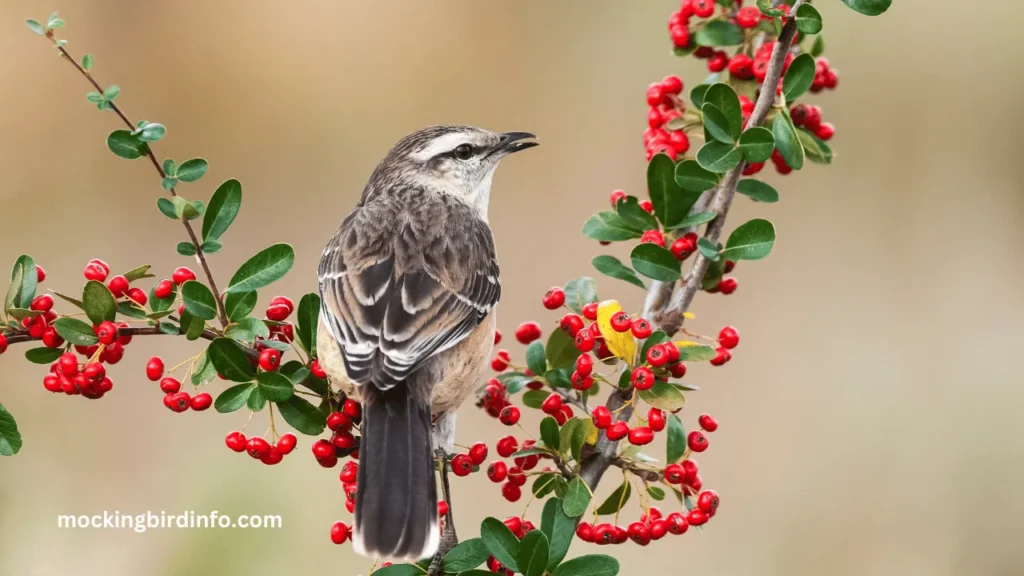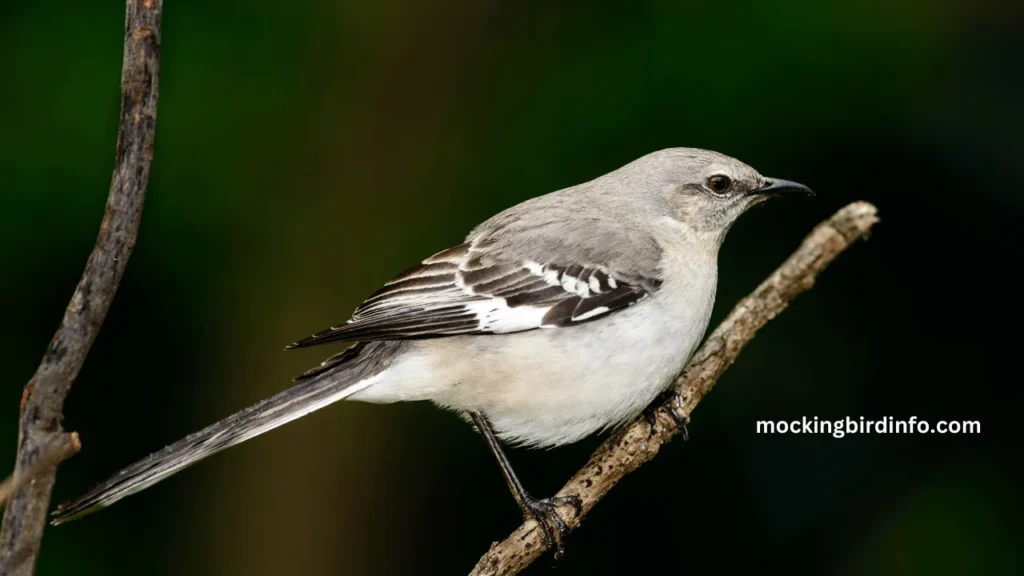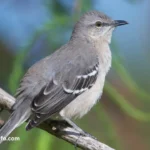If you’ve ever been startled by the sudden swoop of a bird in your backyard, chances are you’ve met a mockingbird on guard duty. These gray-feathered songsters may seem delicate and charming with their melodious imitations, but they have a surprising side that not everyone knows.
In the heart of breeding season, even the most tranquil backyard can turn into a battle zone, leaving many to wonder: Are mockingbirds inherently mean, or is there more to their story?
In reality, mockingbirds are complex creatures, driven by a blend of instinct, intelligence, and remarkable mimicry skills. While their aggressive behavior can seem intimidating, it’s often misunderstood.
What makes a bird that sings the tunes of a dozen species also one of the most territorial defenders? Understanding this helps us see why these birds act the way they do and how vital they are to their environment.
In this post, we’ll dive into the behavior of mockingbirds, their fierce yet fascinating territorial defense strategies, and their indispensable role in the ecosystem.
Whether you’re a bird enthusiast, a nature lover, or just someone puzzled by a feisty bird encounter, read on to uncover the multifaceted nature of mockingbirds and why their perceived meanness might actually be a case of misunderstood heroics.

Contents
Understanding Mockingbird Behavior
The Art of Mimicry
Mockingbirds are famous for their incredible ability to mimic. They can replicate the calls of other birds, animals, and even mechanical sounds like car alarms. This remarkable skill isn’t just a party trick; it serves as a way to establish their territory and ward off rivals.
The more varied their repertoire, the more dominant the mockingbird appears in its habitat.
Song and Vocalizations
The songs of a mockingbird tell a story of survival and allure. Males often use complex vocal patterns to attract mates, with songs that can last for hours without repetition. This vocal prowess helps demonstrate their fitness to potential mates, signaling strength and genetic health.
Social and Pairing Habits
Mockingbirds are known for their monogamous pairing, often staying with the same partner for multiple seasons. They exhibit strong social bonds, especially when it comes to raising their young. This sense of partnership is part of why they are so fiercely defensive of their territories.
Territorial Defense Mechanisms
Aggression with a Purpose
When a mockingbird swoops down at a cat, dog, or even an unsuspecting human, it’s not just being mean. This aggressive behavior is instinctive, especially during breeding season when their nests are most vulnerable. The bird’s protective drive ensures the safety of its young, making it a vigilant and devoted parent.
Tactical Deterrence
Mockingbirds use a variety of tactics to deter threats. Dive-bombing is the most noticeable, but their arsenal also includes loud, repetitive calls and, at times, physical contact. These birds assess the threat level and adjust their tactics accordingly, showing an impressive level of adaptability and intelligence.
Myth vs. Reality
There is a common misconception that mockingbirds are overly aggressive by nature. However, their behavior is largely a response to potential dangers. What might seem like unprovoked attacks are usually triggered by perceived threats too close to their nesting sites.

The Essential Role of Mockingbirds in the Ecosystem
Natural Pest Control
Mockingbirds play a crucial role in controlling insect populations, especially during breeding season when they need a high-protein diet for their young. They feed on insects such as beetles, grasshoppers, and spiders, acting as a natural pest management system that benefits gardens and crops alike.
Seed Dispersal Agents
In addition to insects, mockingbirds consume fruits and berries, inadvertently spreading seeds through their droppings. This contributes to seed dispersal and the growth of native plants, promoting biodiversity and aiding in the health of their habitats.
Balance and Biodiversity
The presence of mockingbirds contributes to ecosystem balance. Their roles as both predator and prey ensure they fit seamlessly into the food chain. By managing insect populations and aiding in seed dispersal, they help maintain a thriving, balanced environment that supports a variety of life forms.
Conclusion: Appreciating Mockingbirds’ Complexity
Mockingbirds are not inherently mean; they are fiercely protective and intelligent creatures with a strong sense of survival. Their behavior, though sometimes alarming, is essential for the safety of their nests and the vitality of their species.
The next time you witness a mockingbird warding off an intruder, consider it a testament to their incredible instinct and devotion.
Their contributions as pest controllers and seed dispersers highlight their importance in the ecosystem, ensuring biodiversity and ecological balance. By understanding and respecting their behaviors, we can appreciate these vocal acrobats for the unique roles they play in nature.
FAQs
Are mockingbirds mean by nature?
Mockingbirds are not inherently mean; their aggressive behavior is mainly a defense mechanism to protect their nests and offspring.
Why do mockingbirds mimic sounds?
They mimic sounds to communicate, defend their territory, and attract mates, showcasing their adaptability and intelligence.
What triggers a mockingbird to attack humans?
Attacks on humans usually occur when people unknowingly come too close to a nesting site, prompting the bird to defend its territory.
Do mockingbirds attack other animals?
Yes, mockingbirds will defend their territory against perceived threats like cats, dogs, and other birds, especially during breeding season.
What do mockingbirds eat?
Mockingbirds primarily eat insects, fruits, and berries, which supports their diet and contributes to pest control and seed dispersal.
Are mockingbirds solitary birds?
No, mockingbirds often form monogamous pairs and stay together to raise their young, showing strong social bonds.








